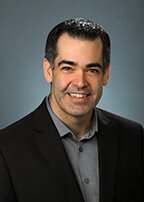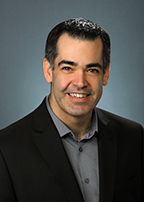
The Wide Reach of Psoriasis: The “Greater Patient”Concept
|
Andrew Gosse bh IN BRIEF This article is based on a bh interview with Andrew Gosse of St John’s Newfoundland, founder and president of the Canadian Psoriasis Network (CPN), a national not-for-profit organization whose focus is on research, outreach, education and support for Canadians living with psoriatic disease. Its goal is to improve the quality of life of all Canadians who are living with psoriasis and psoriatic arthritis while vigorously pursuing a cure. http://www.cpn-rcp.com/
Notes: 1 Basra, M.K. & Finlay, A.Y. 2007. Abstract – The family impact of skin diseases: The Greater Patient concept. British Journal of Dermatology, 156(5), 929-37. Available here
2 Canadian Association of Psoriasis Patients. n.d. The impact of psoriasis on Canadians. A presentation for the Canadian delegation to the World Health Organization.
|
“Treatment after treatment failed. After each attempt, I would be in abject misery trying to conjure up the courage to try something else that might help.”Those are the words of Andrew Gosse, founder and president of the Canadian Psoriasis Network (CPN), an organization he founded to help fellow sufferers after successful treatment finally liberated him from his own psoriasis. For him, the disease showed itself when he was just 17 years old. Through his young adult life he struggled with disappointment and withdrew further into himself when treatments failed. Finally, 17 years later, thanks to a progressive dermatologist, he was enrolled in a clinical trial and in about six weeks, his skin was effectively clear. Now, almost eight years later, his disease remains controlled and he can talk about the worst times when 40%-50% of his body was covered with sores that he would itch until they bled. When he finally got to sleep, he would wake up stuck to his clothes and sheets by the dried blood. At his lowest point, he wondered aloud if his life was worth living. Psoriasis, like other chronic diseases, is what Gosse calls “a whole life” disease. “It affects the whole of any part of your life, including your relationships. You can’t separate one part of the disease from any other part. In many ways the psychological effects are almost worse than the physical condition.” Psoriasis is not just an adult disease. It can affect children as young as three months of age. The news that their child has psoriasis is overwhelming for parents. Like all family members of sufferers, they don’t know what to expect, especially since there is no cure. They have to cope with a new normal that will not really change until there is a cure. What Research SaysResearch into the secondary impact of a wide range of skin diseases on partners and family members, what’s called the “Greater Patient” concept, has shown their quality of life is adversely affected by the patient’s disease. For example, 98% said the disease of others caused them emotional distress, 40% said it affected their own jobs or study, and 30% said it affected their finances.1 Canadian research cited in an earlier businesshealth® feature revealed that the average worker with psoriasis missed going to work an average of 23% of an average work year.2 Clearly, the effects of psoriasis can have a devastating impact on the workplace and overall productivity. A Hidden Disease Comes Into the LightFor years, psoriasis has been a hidden disease. Patients hide their condition with long-sleeved shirts, long pants, long hair, make-up and even nail polish. The fingers of a sufferer may look frostbitten or be covered with bandages or gloves. Not knowing the disease is not contagious, many who reach out to shake hands withdraw quickly, dealing another blow to the self-esteem of the sufferer. The tide really began to turn, Gosse says, around 2011, when researchers recognized that psoriasis was not a skin disease, but a systemic condition involving the immune system that affects the whole body. Untreated, it can lead to life-threatening inflammatory diseases involving the heart and other organs. What’s changing now is that people are starting to talk about psoriasis. Also, new treatments are available that control the condition and change lives as Gosse’s life was changed. On the down side, these treatments are expensive. Many dermatologists don’t fully understand their value and insurance companies and other payers object to their cost. At the same time, because their treatments are expensive many patients fear losing their jobs if they are ‘outed’ at work. Even so, if information about psoriasis is more widely available, attitudes will change and everyone will benefit – “better information will lead to better treatment and more support.” The CPN was founded to provide patients and family members with support, not just once, but on a life-long basis. When patients seem ready to despair, family members and partners are often the ones who remain compassionate and don’t give up the struggle. At the CPN, Gosse and others want to raise the profile of the disease, promote community activities to build self-esteem, and create enough awareness so that we can all have a generalized compassion and everyone will have an opportunity to contribute their “whole life” to society. |

